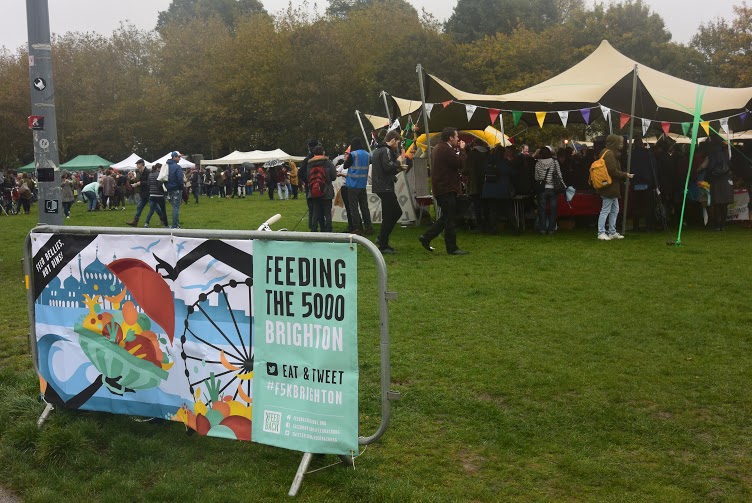I found out on Facebook a while ago that, just a few minutes from my house, there would be an event going on at which I could get a free lunch. Being a student (and already well into my monthly overdraft), of course I went along, as did thousands of others- if the 3,400 people who say they “went” on the Facebook event are telling the truth, that is.
Relying on waste food from a variety of sources to cook more than a tonne of lunches for those in attendance, it was definitely an impressive event.
The live DJ set, cookery demonstrations and talks from campaigners and public figures gave it all a great atmosphere despite the drizzle that threatened to turn it into a soggy, sullen display of masses of unclaimed food; if public interest had been lesser, the event itself could have served as an even more powerful and ironic display of the problems of food waste.
Thankfully this was not the case, and the event was a huge success. But the fact that the event itself could even exist is an alarming one. How was it possible to make more than a tonne of fresh food that was appealing, edible and (in my opinion) delicious, and distribute it, for free, to that many people?
The idea that such a staggering amount of food wastage can be obtained in a short enough period of time for it to be given away, still presentable and appetizing, is truly scary. This is the area in which I feel Feeding the 5,000 was the largest success: highlighting the problem of food waste in what they called a “delicious solution”.
Yes, the food was good; and yes, the fact that it was free is an incredible testament to Brighton’s passionate ethical spirit; but the fact that the food itself exists, and was made available in this way, is a shocking reality that it is difficult to face.
Drawing light to the decadent consumption habits of our society and the extent to which regulations on waste food are damaging to the environment and the people within it, Feeding the 5,000 served as a reminder that there is no shortage of food – the problem is that people aren’t able to use it.
This is not to say that they are to blame – unreasonable and seemingly pointless restrictions in the legality of what can be used and given away means that it could be possible for a person who works in food service to lose their job if they tried to give a loaf of bread, one day past its sell-by date, to a homeless person on their way home.
The problem does not lie in the decadence and selfishness of the people within society, but of society itself. The fact that the edible food wasted by most supermarkets could go to feed the entire homeless population of the cities they’re in should show you that our regulations on waste are not sustainable or reasonable.
The fact that the UK is at the peak of EU food waste, discarding 366 thousand tonnes of food in retail and 3 million tonnes in the food service industry, should tell us something about the problematic way in which we handle our waste.
With sustainability being one of the most important issues facing our country today, the question needs to be raised of how we are currently allowing this kind of waste to happen – and, of course, thanks needs to be given to the Feeding the 5,000 initiative and all involved for creating such an eye-opening and enjoyable event.
Devin Thomas
Image: Miriam Steiner





